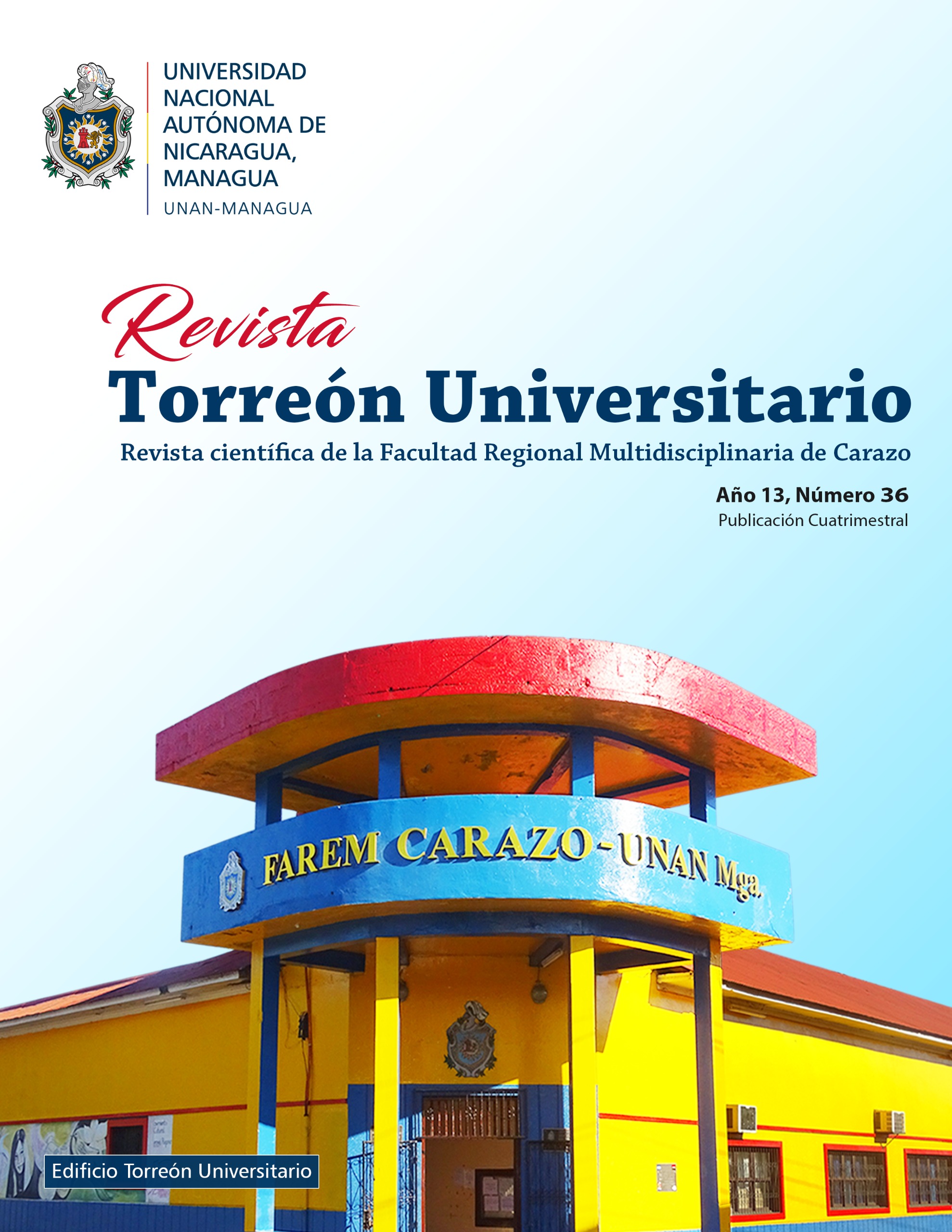Inclusividad en la educación, experiencias, logros, retos y desafíos
DOI:
https://doi.org/10.5377/rtu.v13i36.17619Palabras clave:
Aprendizaje, Desafíos, Educación, Educación Superior, Enseñanza, Inclusividad, Logros, Paradigmas, RetosResumen
El objetivo principal de esta investigación es identificar los principales logros de la inclusividad en la educación a través de las experiencias de los protagonistas y así de esa manera establecer los principales retos y desafíos para lograr la inclusividad de personas con discapacidad en la educación.
La unidad de análisis de la presente investigación está constituida por una muestra no probabilística adecuada de manera intencional o por conveniencia por 24 estudiantes de educación secundaria del Instituto Miguel de Cervantes Saavedra, 2 estudiantes inclusivos de educación superior de UNAN-RUCFA, 6 docentes, jóvenes desde la municipalidad.
El cambio en los paradigmas de la educación de manera general necesita fortalecerse y en algunos casos romperse para permitir la inclusividad en la educación de las personas inclusivas; actualmente la participación de ellos es de calidad en cada una de las actividades.
Descargas
Referencias
Alisedo, G (2006) El aprendizaje de la lengua escrita por el alumno sordo. Ministerio de Educación
Asamblea Nacional (Ley 763). Ley de los derechos de las personas con Discapacidad. Recuperado de: https://www.ilo.org/dyn/travail/docs/2129/Ley%20No.%20763%20(1).pdf
Arias, F. (2012). El proyecto de Investigación. Introducción a la metodología científica. (6ta ed.). Caracas: Episteme.
Bernal, C. (2010). Metodología de la investigación. (3ra ed.). Colombia: Pearson Educación.
Balieiro, L. (2014) Declaraciones de la UNESCO, educación de sordos y educación inclusiva: un análisis de la política nacional de educación de Brasil
Fish, S. y Jill P. Morford (junio del 2012) Los beneficios del bilingüismo: impacto en el desarrollo cognitivo y del lenguaje. Lenguaje y Aprendizaje visual: nota de investigación
Hernández, R, Fernández, C y Baptista, M. (2014). Metodología de la Investigación. (6ta edición). México: McGRAW-HILL.
ONU (2015). Objetivo de Desarrollo Sostenible
Vallejos, R. y García, B. (2016) La importancia del estudio de las lenguas de señas
Universidad Nacional Autónoma de Nicaragua, UNAN Managua (2020). Política De Admisión. Recuperado de: https://www.unan.edu.ni/wp-content/uploads/unan-managua-politica-institucional-de-ingreso-a-la-universidad.pdf
UNESCO. (2008). Conferencia Internacional de Educación la educación inclusiva: el camino hacia el futuro. Recuperado de: www.ibe. Unesco .org/.../user.../Confinted_48 3_Spanish.pdf
Descargas
Publicado
Número
Sección
Licencia
Derechos de autor 2024 Universidad Nacional Autónoma de Nicaragua-Managua

Esta obra está bajo una licencia internacional Creative Commons Atribución-NoComercial-SinDerivadas 4.0.
The authors who publish in this journal agree to the following terms.
- The author or authors of the articles, essays or research grant the National Autonomous University of Nicaragua, Managua (UNAN-Managua) the editing rights (copyright) of the submitted work, therefore the University has the exclusive right to publish the article for the entire copyright period.
- These copyrights/authors authorize Torreón Universitario Magazine and the University to edit and disseminate/publish the article in said Magazine, including printed and electronic reproduction, storage, retrieval and any other type of publication, and sources of secondary information as services. of summaries and databases, they also empower it to protect the article against unauthorized use for dissemination by printed or electronic media (PDF, HTML, EPUB, XML or others).
License for use of content
The magazine uses the Creative Commons Attribution-NonCommercial-NoDerivs 4.0 International License.
Under this statement:

This journal is licensed under a Creative Commons Attribution-NonCommercial-NoDerivatives 4.0 International License. It can be copied, distributed and transmitted publicly as long as the author and source are cited (Revista Torreón Universitario), it should not be modified or used for any commercial purpose. The full license can be found at http://creativecommons.org/licenses/by-nc-nd/4.0/.



